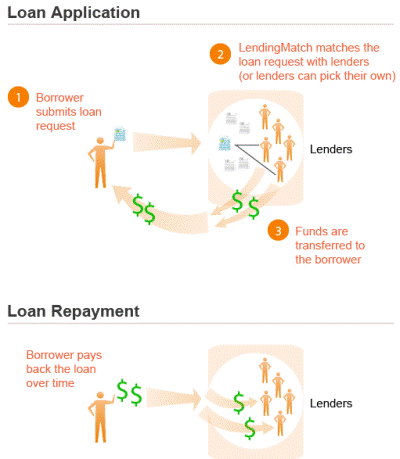Today, Lendingclub.com launched offering a p2p lending service to Facebook members. Members can request loans between $1000 and $25000. Other facebook members can the lend the money to the borrower. While technically not arranging loans between freinds like CircleLending, Lendingclub makes uses of the social network and the trust that users have into it. Lendingclub combines aspects from other p2p lending sites like Prosper.com and Zopa.com.
Comparing it to Prosper:
- Lendingclub requires higher credit score as threshold for borrowers to apply (640 compared to Prosper’s 520)
- Lendingclub suggests an interest rate based on the borrowers credit grade rather than letting the borrower set an interest rate.
- There are groups like at Prosper
Lendingclub uses what it calls “LendingMatch” to automatically match parties on shared connection it finds. Lenders can additionally manually select and search loans.

The founders of Lendingclub, one of them has a background at Mastercard, raised $2 million in angel funding (source: VentureBeat).
Using an existing social network gives Lendingclub a great marketing advantage over competitor Prosper.com, which had to build its memberbase starting from zero.


